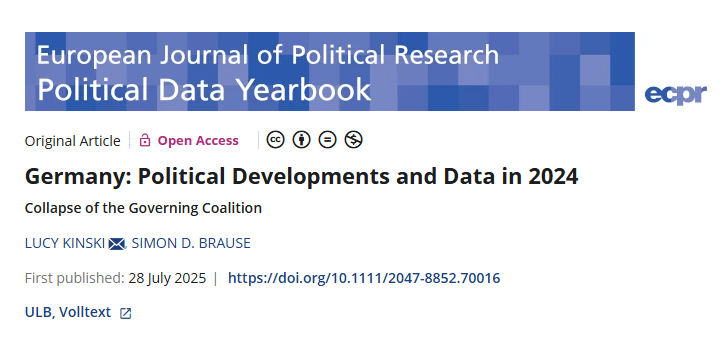German politics tends to be rather stable, yet 2024 marked a particularly volatile year with four major elections. In the state elections in Saxony, Thuringia, and Brandenburg, as well as the European Parliament (EP) elections, the parties of the federal governing coalition suffered heavy losses, while the radical-right Alternative for Germany (Alternative für Deutschland) and the newly founded left-conservative Alliance Sahra Wagenknecht (Bündnis Sahra Wagenknecht) made significant gains. Following the EP elections, German Christian Democrat Ursula von der Leyen (Christlich Demokratische Union) was re-elected as European Commission President. Amid a deepening economic recession and intensifying public controversy over migration that fuelled public discontent with the federal government, internal tensions within the coalition over fiscal policy ultimately culminated in a government crisis. In December, social democratic Chancellor Olaf Scholz (Social Democratic Party of Germany/Sozialdemokratische Partei Deutschlands) initiated a vote of confidence, which he deliberately lost, prompting the collapse of the coalition. As a result, snap elections were scheduled for February 2025.
Link: https://ejpr.onlinelibrary.wiley.com/doi/full/10.1111/2047-8852.70016


